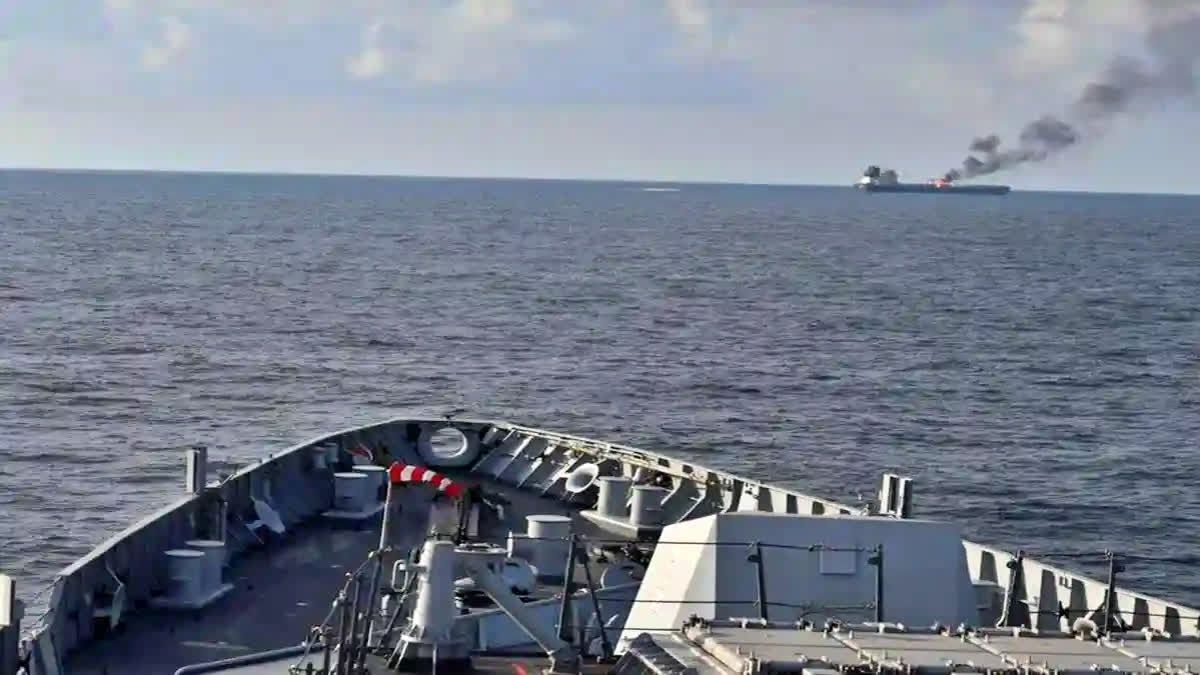New Delhi: The ongoing Red Sea crisis is going to impact India’s capital goods and fertiliser sectors the most, according to a CRISIL report released on Wednesday. It will have a medium impact on pharma, crude oil, and shipping sectors, the rating agency said.
Houthi rebels in Yemen are attacking cargo ships plying the waters connecting Asia with Europe and the United States in a bid to stop Israel’s offensive against Hamas in Gaza. As a result, traffic is being forced away from the Suez Canal and redirected around the tip of Africa. The disruption is causing delays and driving up costs at a time when economies around the world are already grappling with concerns of resurgent inflationary trends. The extent to which escalating shipping costs will reflect in consumer prices is still unclear. This is especially in Europe, where weak consumer demand means businesses will face pressure to absorb extra shipping costs.
The CRISIL report said that a sustained disruption in trade routes, particularly one causing delays in the timely delivery of goods, holds the potential to significantly impact players within the capital goods sector. The ripple effect of such disruptions extends to various facets of the industry, potentially leading to an undesirable inventory build-up. This accumulation can, in turn, exert pressure on the operational efficiency of engineering, procurement and construction companies operating in this sector. The intricacies of supply chain management become more pronounced as delayed deliveries may contribute to a slowdown in the crucial process of order conversions along with shooting up of logistics costs. Consequently, the sector could grapple with the dual challenges of managing excess inventory and a deceleration in the conversion of prospective orders, impacting the overall business dynamics and performance of these enterprises.
The Red Sea conflict has impacted Middle East’s fertiliser exports to India. As per reports, the crisis has extended shipment timelines by nearly 15 days and hiked freight costs. Import of the key fertiliser, muriate of potash (MOP), from Jordan and Israel has been majorly affected. Israel constitutes 10-15% of MOP exports to India, while Jordan constitutes 25-30%. Though the Indian government has assured a sufficient buffer for fertilisers, MOP supplies from these countries will be affected if the situation persists for long.
Some 50% of the Indian pharma industry’s revenue comes from export markets, with the US and Europe contributing majorly. While the US and Europe contributed 50% of the overall formulation exports, Europe alone contributed one-third of the overall bulk drug exports between April and November 2023.
Out of the overall exports, almost two-thirds of pharma exports are by sea; with the Red Sea being the shortest route connecting Asia with Europe and North America, there could be some turbulence if the situation persists in the long run. This may result in increased shipping surcharges and freight costs, which will eventually impact the margins of industry players. The delay in product deliveries may lead to an additional financial burden on them. Having said that, so far, the impact of this event is not pronounced.
Overall pharma exports grew by a healthy 12.5% on-year (rupee terms) between April and November 2023. This growth was supported by the drug shortages in these two geographies and other factors such as exporters planning well in advance for the long year-end vacations in the US and Europe. Hence, exports to these two key markets happened well in advance to gear up for the peak season. However, from a broader perspective, considering India’s dependence on the US and Europe for pharma exports, the current crisis, if prolonged, may lead to deterioration of margins, increased shipping/freight charges, and an additional financial burden due to delay in product delivery over the longer term
India’s overall import of crude depends on Russia (37%), Iraq (21%), and Saudi Arabia (14%). While the supply has largely remained unaffected, the current escalation has resulted in elevated freight and insurance costs. Furthermore, crude prices have started inching upwards consequent to the escalated geopolitical tensions. This is likely to impact incremental spreads observed by the oil marketing companies in the domestic market. Tighter shipping markets would further impact exports; Europe accounted for 21% of India’s overall petroleum product exports in fiscal 2023. Incremental shipping costs are likely to reduce overall spreads of petroleum product exports, impacting the profitability of standalone refiners.
CRISIL said that shipping freight rates have spiked of late because of geopolitical issues in the Middle East and attacks on vessels sailing through the Red Sea. While container shipping freight rates globally are now 2.5-3.0 times higher than in early December 2023, spot rates for vessels transiting through the Suez Canal — particularly from Asia to Europe — have surged nearly five-fold. Also, rates from China to the US have more than doubled.
The increase in global spot rates is also because of a shortage of available vessels at ports owing to unscheduled rerouting around the Cape of Good Hope, which is causing delays of up to two weeks. While 80% of the shipping contracts are long-term, their renewals can be affected if the geopolitical tension in the Middle East persists. That said, the additional cost for the detour may not be significant for the vessel operator when compared to the increase in freight rates. The operator could benefit from not having to pay the Suez Canal toll. To summarise, the overall impact of the situation has been positive to neutral on the shipping industry given the fact that the elevated freight rates have more than compensated for the incremental operating costs and additional risk borne by the operators.
Read More


